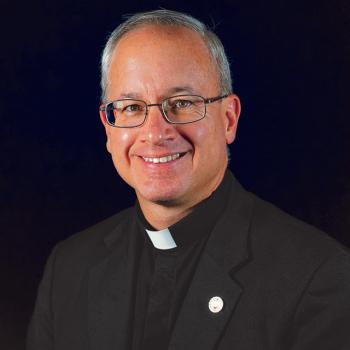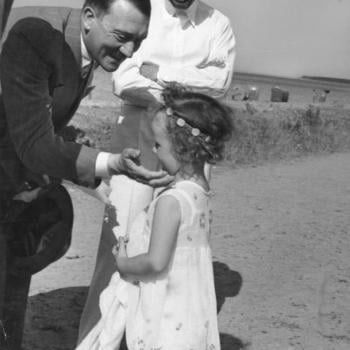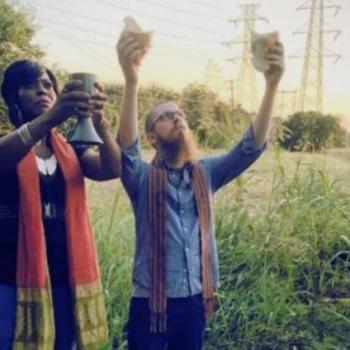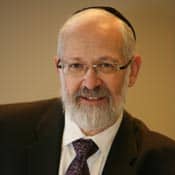Penning a message of appreciation, prayer, and hope to our Christian friends has become a welcome part of our High Holy Days routine. Somehow, my colleague Rabbi Abraham Cooper and I didn't fully distill our thoughts until Yom Kippur passed, although we had several conversations earlier. The enormous religious tension that observant Jews feel before the Days of Judgment added to the pressure of dealing with some difficult events on the global political scene, so perhaps you can excuse our tardiness.
As we began, we watched as PA President Mahmoud Abbas rise to the UN rostrum to a standing ovation as he set forth the case for global support for a unilaterally declared Palestinian State. Abbas said he came from the Holy Land, where Mohammad ascended to heaven, where Jesus was born, and then went on to lambast Israel for its alleged "ethnic cleansing."
We were incensed that Abbas, as he was staking out the moral claim for the state of Palestine, pointedly omitted any reference to Isaiah or Jeremiah or David or Solomon. His erasure of Jewish history evoked not a murmur of protest from the hundreds of diplomats seated in the cavernous hall of the General Assembly.
Perhaps we should not have been surprised that Abbas continues the Palestinians' serial denial of an inconvenient truth: the continuous 3,000-year Jewish presence in the Holy Land. He has chosen to plant the moral flag of a Palestinian future on the eradication of the Jewish past.
But dear friends, what about you? We did not hear a single Christian voice raised in protest as Jewish history and our values are denied from the world's most prestigious podium. Is there no one concerned about peace in the Middle East, no friend of the Jewish people, with the resolve to rise up to rebut Abbas' malicious revisionism?
For us, Rosh Hashanah was always a holiday we could share. The traditional themes of forgiveness, repentance, and atonement resonated with serious Christians.
What can we share this year?
A great Chassidic leader, the Rebbe of Slonim, taught that the gift of repentance has a darker side. For the most part, we sin because we don't find the strength to resist the allure of something forbidden to us. Once we fall into the grip of our desires, we could mount a "diminished capacity" defense before our Heavenly Father. We could claim that it was humanly impossible to resist. But what about afterward? Months later we have long broken free of the vise-grip of temptation. We can be objective once again, and clear about our commitment to G-d. We ought to be contrite and resolve never to transgress again. If we can't properly repent when we are free of transgression, what does that tell us about our connection with G-d? What excuse can there be? That is a pretty powerful thought. G-d gives us second chances. Failing to use them, however, can be even worse than our first sin.
In the aftermath of the Holocaust, many Christian leaders reacted to the role that Christian anti-Semitism had played in creating the climate for the eager participation of so many people in the extermination of Jews. They pledged that future generations would be educated to respect Jews, rather than hate them. They also responded to charges that too many Christian leaders remained silent while six million were slaughtered. (Even the saintly Dietrich Bonheoffer complained that very few Christians reacted, as they should.) They argued, "We had no idea! We didn't know! We couldn't imagine that hatred of Jews runs this deep, and that Man has such a capacity for barbarism. We could not possibly have been expected to take Hitler's rants seriously."
Maybe so. But what about now, seventy years later? When you hear a leader of a people who drops all pretense of ever willing to live side by side with a Jewish State in peace, can there be room for silence?
It turns out that for President Abbas Israel's crime isn't post-1967 West Bank settlements, but the original sin of its very establishment sixty-three years ago. Need more evidence? Visit the website of the Permanent Observer Mission of Palestine to the UN—check out its logo: it's the one with a map of the Palestinian state where Israel stands today.
As we look ahead to a New Year, we appreciate the blessings of the past. We value the solid friendships we have enjoyed with our Christian friends. To those who are still there for us, especially the millions in much of the evangelical world, as well as significant numbers of Catholics and Protestants, we hope and pray that G-d will shower you with all kinds of blessings. We are so grateful to those who are in it for the distance. To others who want to reinstate the trust, please don't call us. Assurances will be as comforting as stale honey-cake the day after Rosh Hashanah. Instead, please do two things. Watch our 30 second video, and pass along the message that peace will begin when Arabs can say, "We recognize Israel as a Jewish state." (You will be helping endangered Christians in the Middle East as well. Until Arabs can admit to the rights of others, Christians in that neighborhood will be no safer than Jews.) Then express your feelings directly to Palestine's Mission to the UN and to fellow Christians devoted to the Palestinian cause.





